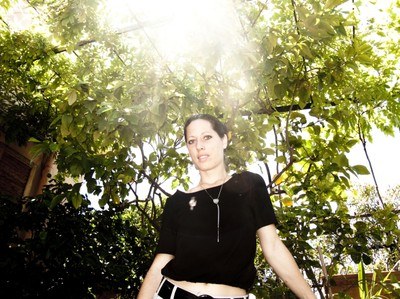Italy's young hope to work before they're old
The path from higher education to a steady job is particularly painful in Italy. Many quit their studies or end up in long-term unemployment at the end of their studies. Teacher Francesca Seguela is happy to have a few hours of summer work after spending months unemployed.
"I'll be teaching foreigners Italian a couple of nights a week. It's not a living wage and I don't make enough to find a place to live. But I need a job. Maybe I can get more teaching later," says 31 year old Francesca Seguela.
There has been a dramatic increase in youth unemployment in the entire OECD region over the past two years, and the unemployment keeps rising. Governments are now urged to act immediately to limit the damage. Italy's youth unemployment (15 to 24 year olds) is three to four times that of the rest of the population. OECD figures show it is now close to an average of 30 percent.
Italy is in a unique situation where the transition from leaving higher education to finding work is particularly difficult. Italian youths with higher education has the lowest employment rate in the whole of the OECD region, according to the survey mapping the number of 15 to 29 year olds who are in employment.
In most countries there is a link between getting an education and finding a job; the higher the education, the easier it is to find work. But the situation in Italy is different. The employment rate for Italian youths who have no more than secondary education is higher than that of youths with higher education. Statistically it doesn't pay to get a higher degree, both from an employment and wage level point of view.
Too many teachers
Francesca, Paulo, Emanuela and Emanuele are among the young Italians with a university degree looking for a steady job.
Francesca is a teacher. Paulo, a lawyer, passed his master's degree with distinction and now works for two years with no pay for a Rome law firm in order to obtain his licence to practice law. Emanuela is a graphic designer. She didn't get paid in her first job when the firm went bust. Now she's trying to freelance. Emanuela's boyfriend has a Ph.D. in theoretical physics and wants to do research, and Francesca's boyfriend has a master's degree in philosophy. Both have had temporary jobs, but for the researcher the project is over and the job gone.
These are the children of middle class families who must live off pocket money from their parents long after they have graduated. They're drifting between the labour market and temporary or casual jobs, sometimes working in the black market. Those without an education or whose parents cannot sponsor them are in deeper trouble still. 36 percent of Italian households are poor, and poverty is rising while Italy's middle class is shrinking. More than eight percent of poor households rely on a single earner, but the pay is often too poor to live off.
Francesca Seguela rents a flat from her uncle. She shares it with her sister and four others. Her sister, 26, is a pharmacist specialist. She has been applying for jobs for two years and has just been offered a one year locum.
"We're the first generation to be worse off than the generation before us. In Italy each generation has produced a new generation which has been better off than the one before. But now my parents are in a better position than I am," says Francesca.
She has nearly finished her master's thesis but lacks motivation. She is already qualified to teach children both Latin and Greek, but lacks a six-months course which would have authorised her to teach in state-run schools. The government has decided there are too many teachers, and her university no longer offers this course because of a lack of money. Nobody knows when the course will be offered again, so she is pessimistic about a future in the school sector. Yet she can teach Italian to foreigners because these private schools do not require that particular qualification. So she will try that.
Francesca's mother was a headmistress in her home town, a small place in Southern Italy with 7,000 people. Her father is a political scientist but has taken over a business which has been in the family for generations. Francesca is pessimistic about the future. The business can be a last resort, but she'd rather not move back home. All her friends have left because there are no jobs, so who would she talk to?
"My mother enjoys a good state pension. I will never have that. If I reach 35 before I get a steady job I must work until I'm 70 before I can retire on a pension - If I'm lucky."
And children? "No, if I can't find a job in the next couple of years I can forget about that."
Italy's fertility rate is one of the worst in Europe. Young people want a safe job before settling down. Francesca has a friend who's a philosopher and works a little for his father.
"I think his father pays him. Many also have to dodge taxes to make a living, and they have no rights".
"It feels like someone's making a fool of you, someone wants to give you a useless education and make you a puppet," she says with disillusionment in her voice.
Unpaid work
Paulo is nervous. He works for a major law firm and comes running during his lunch hour. He graduated with flying colours from law school but is afraid to talk. After graduating you need two years practice with an authorised law firm before you can obtain your licence to practice law. The law firm decides whether to pay him or not. Paulo does not get paid. He lives at home, gets pocket money from his parents and works 10 to 12 hour days.
"This is also a way of hiding poor employment figures and a way to exploit young people during the crisis," says OECD's Stefano Scarpetta to Nordic Labour Journal.
"Don't mention my name, and don't take my picture. If the bar association gets wind of this I will never get my licence," says Paulo.
"This is a system built on recommendations, so it is important to do a good job and be willing to serve. I know of several people who got good grades in written exams but fail to get their licence because someone's delaying approving it, and those responsible claim they have failed their oral exams. It's no good going abroad. There are people with good exams from Harvard and other well-known universities who can't get their licence to practice law in Italy. The bar association is corrupt. If I knew whether it will be only these two years I wouldn't complain, but I don't know that," he says. Many must try and try again.
"73 percent of all Italians between 18 and 40 live at home with their mother. We have no choice. I can't get my own place as long as I'm not making any money. It is very expensive to rent or buy a flat in Rome."
Paulo comes from a middle class family, his father is a researcher and his mother runs a shop which has been in the family for generations. He's living off his parents' good-will. Starting his own family is out of the question.
"I really want to become a father, but with no job your child has no future."
His dream is to specialise in international law, so he has studied two languages on the side.
"There's something wrong with the system," he says. "I've been reading ancient Roman law for two years, a complete waste of time. The old are stopping the young. The problem isn't age per se, but our system which is in need of an overhaul," says Paulo.

Emanuela lost both her job and several months pay when the agency she worked for went bust.
A victim of the crisis
Emanuela Gualersi (27) has a bachelor degree in graphic design. Soon after graduating she got an internship in a communications agency, but the agency went bust, and Emanuela was never paid for the project she had delivered. Now she's trying her luck freelancing.
Her mother is Swedish and has contacts in that country, and she has now got a commission from the town of Umeå. Umeå is the 2014 European capital of culture, and Emanuela will make a video about children and families in Italy and in Sweden. So far she is making €480 a month - the equivalent of a 25 percent position. It's not a liveable wage so she's still living at home. She also gets €200 a month from her parents.
Her boyfriend Emanuele (34) has a Ph.D. in theoretical physics. He has worked on a project at the University of Torino for two years, but that has now ended. The university has had to cut budgets and the project ran out of finance. He had no job contract and therefore cannot draw any unemployment benefit.
"If he doesn't find something soon he's afraid he'll have to make a career change. Emanuele lives with his grandmother and she cannot help him, so he has to make money. Perhaps he needs to emigrate and try his luck in a different country.
"We have been together for seven years," says Emanuela Gualersi.
"It is crazy it has to be this way. I hope we'll get the opportunity to live together sometime."

Young people in Rome, Trastevere, face dark times.
 Follow us on Facebook
Follow us on Facebook
